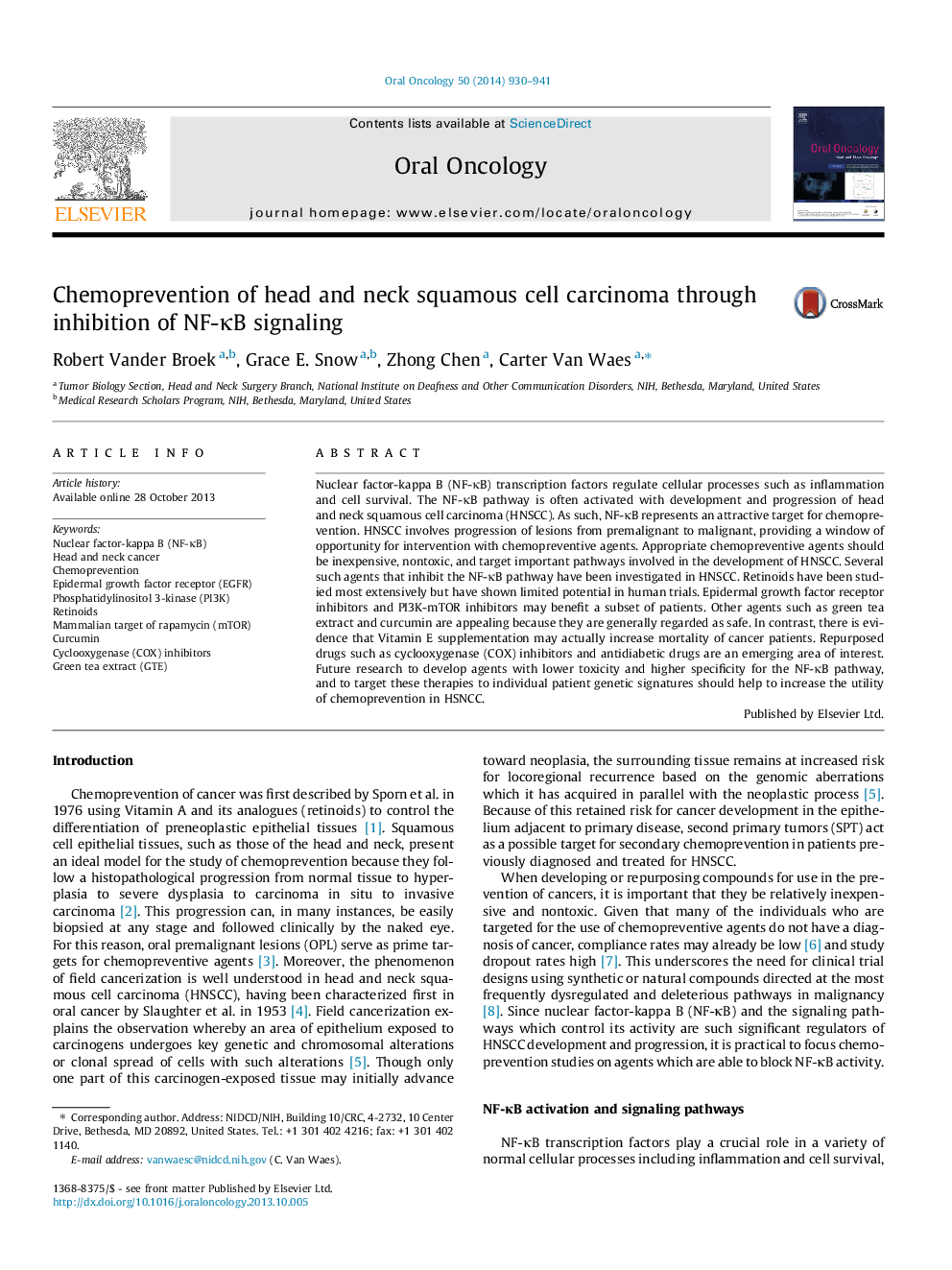| Article ID | Journal | Published Year | Pages | File Type |
|---|---|---|---|---|
| 3164047 | Oral Oncology | 2014 | 12 Pages |
Nuclear factor-kappa B (NF-κB) transcription factors regulate cellular processes such as inflammation and cell survival. The NF-κB pathway is often activated with development and progression of head and neck squamous cell carcinoma (HNSCC). As such, NF-κB represents an attractive target for chemoprevention. HNSCC involves progression of lesions from premalignant to malignant, providing a window of opportunity for intervention with chemopreventive agents. Appropriate chemopreventive agents should be inexpensive, nontoxic, and target important pathways involved in the development of HNSCC. Several such agents that inhibit the NF-κB pathway have been investigated in HNSCC. Retinoids have been studied most extensively but have shown limited potential in human trials. Epidermal growth factor receptor inhibitors and PI3K-mTOR inhibitors may benefit a subset of patients. Other agents such as green tea extract and curcumin are appealing because they are generally regarded as safe. In contrast, there is evidence that Vitamin E supplementation may actually increase mortality of cancer patients. Repurposed drugs such as cyclooxygenase (COX) inhibitors and antidiabetic drugs are an emerging area of interest. Future research to develop agents with lower toxicity and higher specificity for the NF-κB pathway, and to target these therapies to individual patient genetic signatures should help to increase the utility of chemoprevention in HSNCC.
